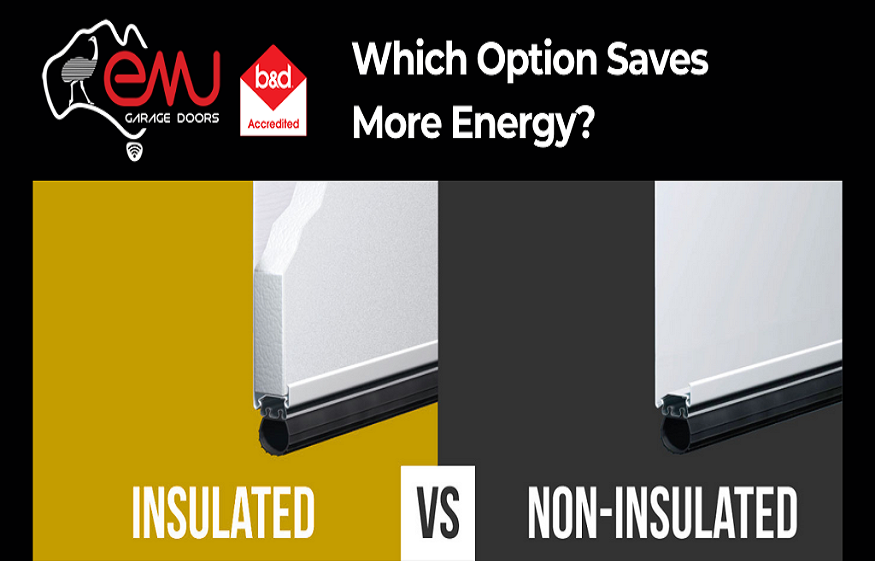As an environmentally conscious homeowner, it is a smart way to reduce energy costs by reducing your carbon footprint. A significant decision in this process is whether to invest in a garage door or a non-insulated garage door.
At Emu Garage Doors in this blog guides you to Insulated vs Non-Insulated Garage Doors, Which Option Saves More Energy.
How Garage Door Insulation Works
The garage door insulation helps regulate the temperature inside your garage, keeping it warm in winter and cooler in summer. Insulated doors are made with a main layer of insulating materials, such as polystyrene or polyurethane foam, placed between two layers of metal. This not only improves energy efficiency but also reduces the noise outside and limits moisture infiltration.
Conversely, garage doors are non-insulated and made of a sheet of metal without any insulated layer. Although they are usually more affordable, they lack the thermal control, noise, and safety benefits offered by the insulated garage gates.
When choosing between insulated and non-insulated garage doors, keep these three key factors in mind:
1. Climate and Weather Conditions”
For tough temperatures or continuous weather recording and ramping areas, untouched garage doors are ideal as they help regulate indoor conditions and minimise energy loss.
2. Garage Usage and Proximity to Living Spaces
If your garage acts as a living room or sits right next to the rooms you frequently use, an insulated garage door can make a big difference. This helps to reduce noise and maintain a more stable temperature, creating a cool and more comfortable environment.
B&D Insulated garage doors usually come at a higher price than non-insulated models, so it is necessary to factor in your budget before deciding. Take a look at our price guide or arrange a measure and quote to find the most appropriate option that balances performance and strength.
Insulated garage doors support a more eco-friendly home in multiple ways:
Lower Energy Use
Insulated garage doors help maintain a stable temperature in the garage, reduce heat loss, and reduce overall energy consumption.
Smaller Carbon Footprint
With low energy requirements, insulated B&D garage doors also support a green lifestyle by lowering the carbon footprint and making the home more durable.
Choosing between insulated and non-insulated B&D garage doors ultimately comes down to your lifestyle, climate, and budget. While non-insulated doors may be more cost-effective upfront, insulated options provide long-term benefits such as energy savings, noise reduction, and a smaller carbon footprint.
If comfort, efficiency, and sustainability are priorities for your home, an insulated garage door is the smarter investment. At Emu Garage Doors, we’re here to help you find the perfect balance between performance and affordability so you can enjoy a garage door that truly adds value to your home.
Follow us on Facebook and Instagram for expert garage door tips, energy-saving insights, and behind-the-scenes looks at how insulated and non-insulated B&D doors can transform your home!

